Dagstuhl Seminar 19032
Conditional Logics and Conditional Reasoning: New Joint Perspectives
( Jan 13 – Jan 16, 2019 )
Permalink
Organizers
- Guillaume Aucher (University of Rennes 1 & IRISA Rennes, FR)
- Paul Egré (ENS - Paris, FR)
- Gabriele Kern-Isberner (TU Dortmund, DE)
- Francesca Poggiolesi (CNRS - Paris, FR)
Contact
- Shida Kunz (for scientific matters)
- Annette Beyer (for administrative matters)
Schedule
Logic in the first half of the 20th century has been mostly concerned with mathematical reasoning and providing a unified framework for the foundations of mathematics. In the second half of the 20th century, with the emergence of artificial intelligence, new formalisms have been introduced to model kinds of inference closer to everyday life.
"Commonsense reasoning", the reasoning that humans perform in everyday life, is significantly different from the reasoning of mathematicians, which has been the object of study of (mathematical) logic for a long time. It is very rich and includes different kinds of reasoning, such as counterfactual reasoning, default reasoning or uncertain and plausible reasoning. Commonsense reasoning is often captured by means of conditionals, which are sentences of the form ‘if A then B’. These conditionals can also be of various kinds: counterfactual, indicative, or subjunctive. The benefits of conditionals for formalizing commonsense reasoning are basically twofold: first, they can encode reasoning patterns of various types if one chooses suitable semantics or calculi, and second, they provide a common syntactic element that can be used to relate and compare the different kinds of commonsense reasoning as well as the mathematical reasoning.
Over the last decades, a number of mathematical advances have been made in modal logic, an area closely related to conditional logics. However, the techniques developed in modal logic with respect to proof theory and correspondence theory have not fully been applied to the conditional logics introduced in artificial intelligence and philosophy. The first objective of this Dagstuhl Seminar is to get together logicians and formal semanticists interested in commonsense reasoning in order to provide solid foundations and revisit conditional logics in light of these recent mathematical advances. Conditionals are also studied in the psychology of reasoning, which has recently witnessed a new wave work. In particular, an effort to confront semantic frameworks with empirical results has been made. The second objective of this seminar is to provide an opportunity for these different communities to meet and reinforce their ties.
 Guillaume Aucher, Paul Egré, Gabriele Kern-Isberner, and Francesca Poggiolesi
Guillaume Aucher, Paul Egré, Gabriele Kern-Isberner, and Francesca Poggiolesi
Logic in the first half of the 20th century has been mostly concerned with mathematical reasoning and providing a unified framework for the foundations of mathematics. In the second half of the 20th century, with the emergence of artificial intelligence, new formalisms have been introduced to model kinds of inference closer to everyday life.
"Commonsense reasoning", the reasoning that humans perform in everyday life, is significantly different from the reasoning of mathematicians, which has been the object of study of (mathematical) logic for a long time. It is very rich and includes different kinds of reasoning, such as counterfactual reasoning, default reasoning or uncertain and plausible reasoning. Commonsense reasoning is often captured by means of conditionals, which are sentences of the form `if A then B'. These conditionals can also be of various kinds: counterfactual, indicative, or subjunctive. The benefits of conditionals for formalizing commonsense reasoning are basically twofold: first, they can encode reasoning patterns of various types if one chooses suitable semantics or calculi, and second, they provide a common syntactic element that can be used to relate and compare the different kinds of commonsense reasoning as well as the mathematical reasoning.
Conditionals are also studied in the psychology of reasoning, which has recently witnessed a new wave of work. In particular, an effort to confront semantic frameworks with empirical results has been made. In parallel, a number of mathematical advances have been made in modal logic, an area closely related to conditional logics. However, the techniques developed in modal logic with respect to proof theory and correspondence theory have not fully been applied to the conditional logics introduced in artificial intelligence and philosophy. The main objective of this seminar was to provide an opportunity for computer scientists, logicians, psychologists, linguists and philosophers working on that topic to meet and reinforce their ties over several days in the Dagstuhl castle.
We focused on three specific issues which were discussed and worked out in three different working groups. First, we investigated how people's intuitions about 'counterpossibles' can be understood empirically and classified thanks to the theoretical accounts of conditional logics. Second, we reconsidered the various semantics of the basic system P and wondered to which extent pragmatics plays a role in the relevance relation between the antecedant and the consequent of a conditional. Third, we strove to apply the recent advances in proof theory and correspondence theory to conditional logics. These three topics correspond respectively to the working groups "Investigating people's intuitions about counterpossibles (Section 4.1), "The semantics of conditionals" (Section 4.2) and "Correspondence theory and proof theory for conditional logics" (Section 4.3).
These working group discussions were preceded by 13 short talks and 3 tutorials: "Semantics of Conditionals" (by Graham Priest), "Proof Theory of Conditionals" (by Nicola Olivetti) and "The psychology of Indicative Conditionals" (by Karolina Krzyzanowska). These talks and tutorials are summarized in Section 3.
 Guillaume Aucher, Paul Egré, Gabriele Kern-Isberner, and Francesca Poggiolesi
Guillaume Aucher, Paul Egré, Gabriele Kern-Isberner, and Francesca Poggiolesi
- Guillaume Aucher (University of Rennes 1 & IRISA Rennes, FR) [dblp]
- Giosué Baggio (NTNU - Trondheim, NO) [dblp]
- Christoph Beierle (FernUniversität in Hagen, DE) [dblp]
- Giovanni Casini (University of Luxembourg, LU) [dblp]
- Nicole Cruz de Echeverria Loebell (Birkbeck, University of London, GB)
- Didier Dubois (University of Toulouse, FR) [dblp]
- Paul Egré (ENS - Paris, FR) [dblp]
- Marianna Girlando (Aix-Marseille University, FR) [dblp]
- Giuseppe Greco (Utrecht University, NL) [dblp]
- Mario Günther (Universität Regensburg, DE) [dblp]
- Andreas Herzig (University of Toulouse, FR) [dblp]
- Andreas Kapsner (LMU München, DE) [dblp]
- Stefan Kaufmann (University of Connecticut - Storrs, US) [dblp]
- Gabriele Kern-Isberner (TU Dortmund, DE) [dblp]
- Karolina Krzyzanowska (University of Amsterdam, NL) [dblp]
- Nicola Olivetti (Aix-Marseille University, FR) [dblp]
- Francois Olivier (ENS - Paris, FR) [dblp]
- Graham Priest (The City University of New York, US) [dblp]
- Eric Raidl (Universität Konstanz, DE) [dblp]
- Hans Rott (Universität Regensburg, DE) [dblp]
- Niels Skovgaard Olsen (Universität Göttingen, DE) [dblp]
- Keith Stenning (University of Edinburgh, GB) [dblp]
- Jakub Szymanik (University of Amsterdam, NL) [dblp]
- Ivan José Varzinczak (Artois University - Lens, FR) [dblp]
- Emil Weydert (University of Luxembourg, LU) [dblp]
Classification
- artificial intelligence / robotics
- verification / logic
Keywords
- Conditionals
- Psychology of reasoning
- Commonsense Reasoning
- Proof theory
- Correspondence theory

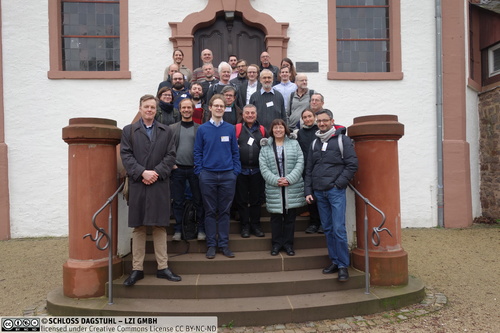
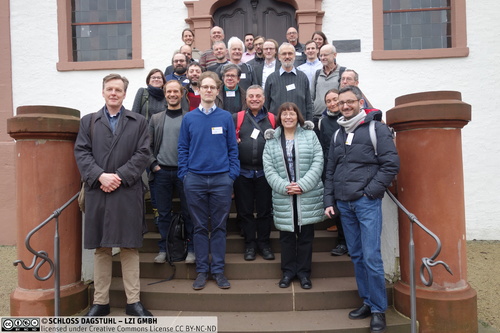
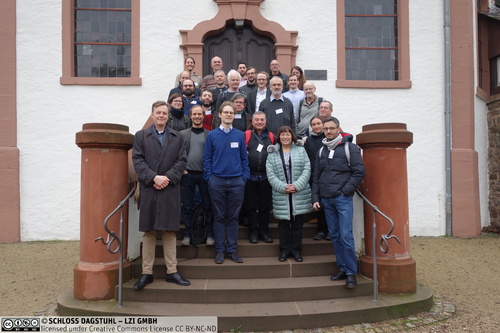
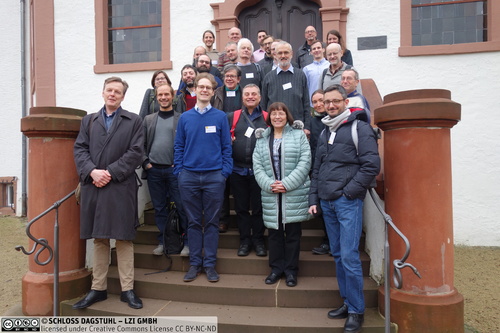
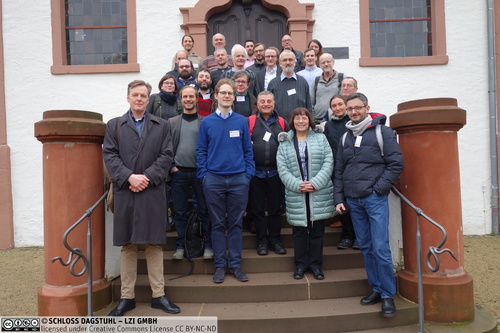
 Creative Commons BY 3.0 DE
Creative Commons BY 3.0 DE
